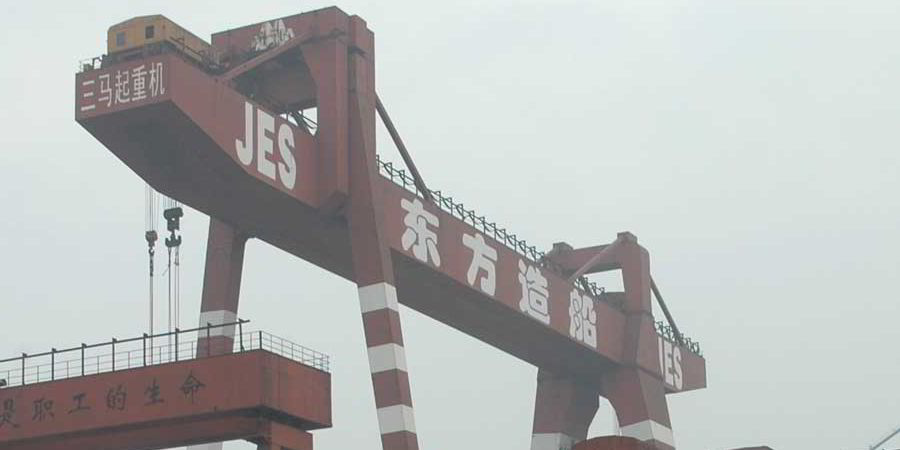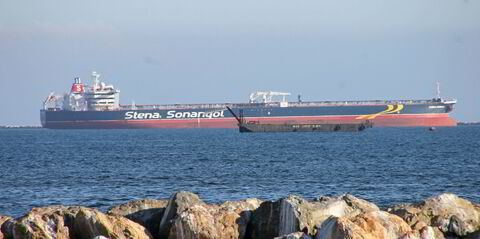The sale of JES International Holdings' shipyard subsidiaries has failed, the restructuring Singapore-listed Chinese yard company has revealed.
The deadline for the disposal was 31 December last year, but talks on an extension to this failed.
JES will now enter into a termination and settlement agreement, with no claims to be made by either party.
In 2016, JES agreed to sell its insolvent Chinese shipyard business for just $500,000.
The buyer was named as Hong Kong Victo International, a specialist in restructuring owned by businessman Zeng Zhen.
The deal comprised Jiangsu Eastern Heavy Industries (JEHI), Jiangsu New Eastern Marine Engineering Equipment (JNEME) and 49% of Jiangsu Nereus Shipyard (JNS).
Legal battle with ex-CEO
Last September, a Chinese court ruled the bankruptcy of JEHI was an illegitimate attempt to avoid debts.
The court rejected the application to restructure the failed yard as a "fake bankruptcy", according to Chinese reports.
JEHI, which is still legally part of JES, declared bankruptcy in 2015 and applied for reorganisation in October that year.
But the listed parent has struggled to persuade Chinese courts to go along with restructuring plans, not least due to missing accounting documents.
JES accused former chief executive Jin Xin and family members of either removing or destroying electronic and paper financial records.
JES has now been informed by a lawyer acting for its restructuring manager that Jin Xin was sentenced at the end of January by the Jingjiang People’s Court to 12 years and six months in prison.
He has the right to appeal.
"The company understands that the written judgment in relation to Jin Xin’s conviction has [not] yet been issued by the Jingjiang People’s Court, Jiangsu Province, and therefore the company is unable to ascertain the charges that Jin Xin has been convicted of," JES said.
It is considering whether to pursue civil action against Jin.
New investment coming?
JES also said it had been approached by prospective investors interested in injecting new businesses into the company.
"The company is reviewing the commercial terms and financials of such new businesses with a view to maximise shareholder value in the event that any transactions do materialise," CEO Jin Yu added.
Before its collapse, JEHI it was regarded as among China's top privately-owned yards, with drydock capacity in excess of 500,000 dwt and more than 5,000 employees.
The company was included on China's official White List of yards, which were considered sound enough for bank financing.
But when court auditors examined its assets, they found that physical equipment and property purchased by the stock-listed entity had been transferred to privately-controlled related parties without adequate compensation.




